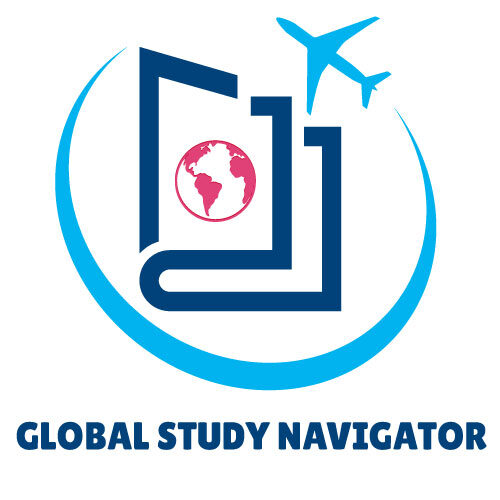Study In New Zealand
Imagine getting a top-notch degree from a New Zealand university and confidently starting your dream
Scholarship
Work Rights
Quick VISA

An Easy Guide to Studying in New Zealand: Start Your Academic Journey Right Now!
Are you dreaming of studying in a place filled with breathtaking landscapes and top-notch education? Look no further than New Zealand!
With its stunning scenery and renowned universities, New Zealand offers an incredible opportunity for international students. Whether you’re envisioning yourself exploring glaciers or delving into exciting academic pursuits, New Zealand has it all.
In this guide, we’ll walk you through everything you need to know about studying in New Zealand, from admission requirements to visa applications. Let’s embark on this exciting journey together!
Why Study in New Zealand
Thinking about studying abroad? New Zealand isn’t just about beautiful scenery – it’s also a top spot for education. Here’s why
Great Education
New Zealand universities are top-notch, recognized worldwide. You can earn a degree that opens doors to awesome job opportunities.
Exciting Learning
Learning here isn’t just about books. You’ll get hands-on experience and work on cool research projects. Plus, the backdrop of stunning landscapes makes learning even more exciting.
Friendly People
Kiwis are super friendly. You’ll find a warm welcome and make friends from all over the world. Plus, you’ll get to experience Maori culture.
Nature's Beauty
Imagine exploring glaciers, rainforests, and beaches after class. New Zealand has it all – from urban fun to breathtaking natural beauty.
Career Boost
Studying here can set you up for success. With strong industry connections and work visa options, you’ll be ready for the global job market.
Requirements for Undergraduate and Postgraduate Studies in New Zealand
Before starting your German educational journey, let’s understand the academic qualifications you’ll need
Undergraduate Admissions Requirements
- Academic Transcripts: You'll need to submit transcripts from your previous studies, showcasing your academic achievements.
- Secondary School Diploma or Equivalent: Having completed high school (or an equivalent qualification) is a must for applying to undergraduate programs in New Zealand.
- Minimum Grade Requirements: Specific grade requirements can vary depending on the program and university, but generally, a score of 60% or higher in your most relevant subjects is a good starting point.
- English Language Proficiency: As most programs are taught in English, demonstrating your English language skills is crucial. This usually involves taking a standardized test like IELTS or TOEFL and achieving a minimum score set by the university ( 6.0 for undergraduate programs).
Postgraduate Admissions Requirements
Bachelor's Degree
- To pursue a postgraduate program, you'll need a completed Bachelor's degree (or an equivalent qualification) in a relevant field from a recognized university.
Academic Transcripts
- Similar to undergraduate applications, you'll need to submit transcripts from your previous studies, particularly your Bachelor's degree.
Minimum Grade Point Average (GPA)
- Universities often have a minimum GPA requirement for postgraduate programs, usually around a B+ or higher.
Standardized Tests (Optional)
- For certain postgraduate programs, particularly those in business or management, you might be required to submit scores from standardized tests like the GMAT or GRE.
English Language Proficiency
- Just like undergraduate programs, demonstrating English language proficiency through IELTS, TOEFL, or another approved test is essential for postgraduate applications. The minimum score requirement might be slightly higher than for undergraduate programs.
Working as an International Student
Part-time work opportunities are available for international students in New Zealand. Here are some popular job options
- Retail Sales Assistant: Work in retail stores, gaining customer service experience.
- Lab Technician: Assist in laboratories, especially if you’re studying science or engineering.
- Tutor: Share your expertise by tutoring fellow students.
- Seasonal Worker: Engage in seasonal jobs, such as fruit picking during harvest time.
Disclaimer: Prices and exchange rates mentioned here are correct at the time of publication and may vary.
Financial Considerations for Studying in New Zealand
Here is a simple guideline of financial considerations of studying in New Zealan:
Tuition Fees
Studying in New Zealand offers a unique blend of quality education, stunning landscapes, and a vibrant cultural experience.
However, before going deep into your educational journey in New Zealan, it’s essential to understand the financial aspects.
So, let’s break down the costs
- Tuition fees vary based on the university, program, and level of study.
- Most international students pay more than domestic students, but there are exceptions.
- On average, an international undergraduate student can expect to pay betweent NZNZ$22,000 and NZ$35,000 per year.
- Postgraduate degrees range from about NZ$20,000 to NZ$38,000, with higher fees for subjects like medicine and veterinary science.
- PhD programs cost between NZ$6,500 and NZ$9,000 per year for most subjects, regardless of student status.


Living Expenses
- Living costs depend on your lifestyle and location within New Zealand.
- Accommodation options include student residence halls, homestays, or flats.
- As an example, Victoria University of Wellington and the University of Auckland estimate living costs to be around NZ$20,000 annually.
- When applying for a student visa, you’ll need to show evidence of having at least NZ$20,000 (or NZ$17,000 for school years 1-13) to cover your living expenses for the first year of study.
- Working part-time (up to 20 hours per week) can help offset costs.
Additional Costs
- Universities may charge administration and student services fees.
- Entertainment, food, power, transport, phone, and internet expenses add up.
- Budgeting wisely is crucial to managing your finances effectively.

Bank Statements & Financial Proof
Now, Let’s dive into the financial aspects of studying in Germany, focusing on the essential requirements for obtaining a student visa.
Bank Statements
From the below section you’ll learn a clear and concise idea about bank statements for studying in New Zealand.
Essential Evidence
- Visa officers meticulously review bank statements to verify your financial credibility. They want to ensure that you have sufficient funds to support your stay in the country.
Authenticity Matters
- You’ve to provide authentic and attested bank statements that accurately reflect your financial situation.


Specific Requirements
- Your bank statement must be from cash savings account (shares, investments, credit cards, or bonds are not acceptable).
- It should cover a period of 6 month or more.
- Use new bank statements that are no more than 31 days old on the day you submit your visa application.
- If you’re under 18, obtain written consent from both parents or legal guardians, along with a copy of your birth certificate that shows their names
Other Required Documents
- Passport: A current passport or other valid travel documentation.
- Confirmation of Acceptance for Studies (CAS): Obtain this from your course provider.


Proof of Sufficient Funds
The amount varies based on your circumstances. Though here are the basic requirements of proof of sufficient funds
- You’ll need to demonstrate you have enough money to cover tuition fees and living expenses.
- Show evidence of having at least NZ$20,000 (or NZ$17,000 for school years 1-13) for the first year of study in New Zealand.
The Immigration Process
So you’ve envisioned yourself conquering lectures in a stunning New Zealand classroom – fantastic! But before you pack your bags, there’s one crucial step securing your student visa. Don’t worry, the process is designed to be clear and efficient. Let’s see some key steps to guide you on your visa application journey
Gather Required Documents
- This is where organization is key! You'll need to collect documents like your passport, academic transcripts, proof of English language proficiency, medical certificates, and most importantly, proof of your financial resources (covered in the previous section). A complete list of required documents can be found on the Immigration New Zealand (INZ) website.
Submit Your Application
- Thankfully, the application process is done electronically! Head over to the INZ website and get ready to fill out the online application form. Make sure you have all your documents scanned and ready to upload electronically as well.
Interview
- In some cases, an immigration officer might request an interview with you to discuss your application further. This is usually nothing to stress about, and it's an opportunity to clarify any questions they might have.
Processing Timeline for Student Visa
The processing timeframe for your student visa application can vary depending on your individual circumstances and your home country. Generally, it’s recommended to apply well in advance of your intended study start date (think at least 3-4 months) to avoid any last-minute hiccups.
Immigration Lawyer for Student Visa Application
Applying for visas can be confusing sometimes, but don’t worry! If you’re feeling lost or have questions about whether you qualify, you might want to talk to us.
We Education Seed Global, know all about student visas and can help you understand what you need to do. We’ll make sure your application is complete and help you if there are any problems along the way. It’s like having a friendly guide to make getting your visa easier!
Final Thoughts
Excited about studying in New Zealand? Remember, we’re here to make your journey smooth and stress-free! From understanding visa requirements to organizing your finances, we’ve got you covered every step of the way.
Don’t hesitate to reach out for expert guidance and turn your dream of studying abroad into reality. Get in touch with us today, and let’s make your academic adventure in New Zealand unforgettable!
We’re excited to help make your dreams of studying in New Zealand a reality.

MSc, PhD, Postdoc
Varsity Resource shares information about Processors availability to take new student.
Scholarship Offer
Scholarship offer around the world can be see in a single platform
Research Offer
Research offer from professor or in a team can be found easily here
Higher Education
Varsity Resource helps student to find there dream education opportunity





